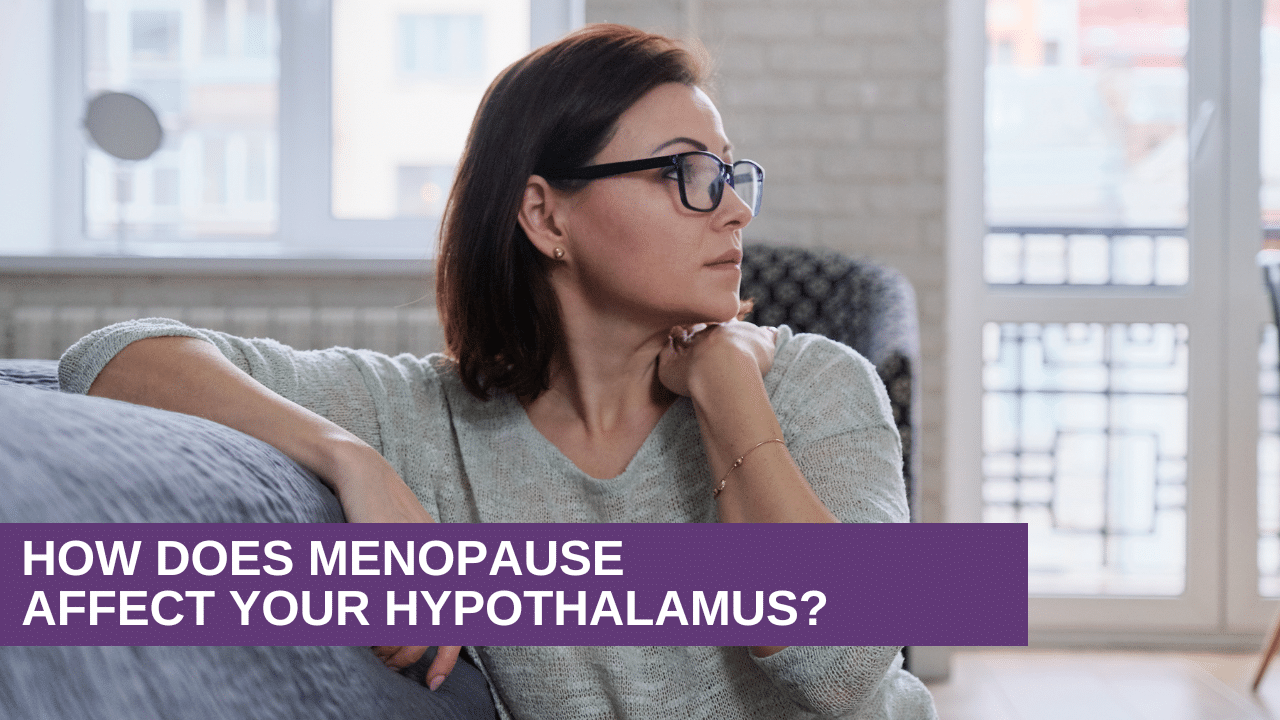How does menopause affect your hypothalamus? And can progesterone help? Let’s talk about it.
As the ovarian hormones decline, the hypothalamus becomes more and more dysfunctional leading to:
- insomnia
- hot flashes
- metabolic issues
- weight gain
- insulin resistance
- changes in skin
- slower metabolism
- fatigue
- brain fog
- irritability
- moodiness
- and depression
Nearly all the symptoms associated with menopause are related to hypothalamic dysfunction.
Now in perimenopause, the first hormone to become out of balance is progesterone. In menopause, both estrogen and progesterone have declined. By postmenopause, testosterone is also low.
Many menopausal women will opt for hormonal replacement therapy to help with their symptoms.
While it can be easy to obtain a high-quality form of estrogen, trying to find a decent progesterone that doesn’t cause side effects can be a little bit harder. There are over-the-counter forms of progesterone, but they’re not very strong. The prescription progesterone in a capsule form is converted into more sedative forms of progesterone and can only be taken at night.
In my menopausal patients for the last 30 years, I’ve been using a prescription-grade bio-identical progesterone now called Gen-Pro.
Gen-Pro is a true transdermal in a liposomal base.
With essential lemon oil, it smells amazing and more so, absorbs incredibly well to balance menopausal hormones. There is no other over-the-counter progesterone that is as concentrated as Gen-Pro. With 3750 mg of progesterone per ounce, Gen-Pro is cost-effective and highly effective for hormone replacement therapy. In menopause, I recommend using Gen-Pro daily except three days per month to clear the receptor sites.
Usually, the dose is 50 to 100 milligrams a day according to how much estrogen you might be using. If you’re using estrogen replacement therapy, you need at least 100 milligrams of progesterone for every one milligram of estradiol per day.
Supporting your hypothalamus with Genesis Gold® during menopause will help to ameliorate the symptoms. As well as help to improve hypothalamic function, which will improve your metabolism, your weight, your sleep, and your brain function.
Using supplemental progesterone during this time can help to keep your nervous system calm and help to alleviate many of the symptoms of menopause.
If you have any questions about what the best hormones for menopause, my Menopause Action Plan™ book goes over every one of the hormones – estrogen progesterone, testosterone, DHEA, growth hormone, and thyroid hormone.
I also talk about menopause extensively in regard to hypothalamus dysfunction and hormone replacement therapy in my newest book, The Hypothalamus Handbook. If you would like to join our Hormone Reboot Training, you can get discounts on both Genesis Gold® and Gen-Pro.




0 Comments